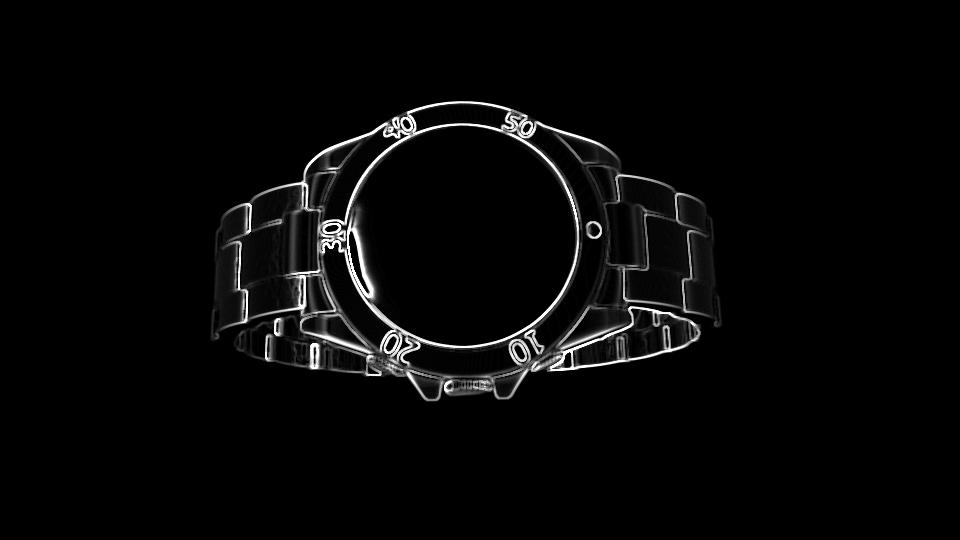‘The Swiss made label reaps billions of francs for Swiss watchmaking’

After more than ten years of intense lobbying and heated parliamentary debates, the new law on “Swissness” takes effect at the start of 2017. The “Swiss made” label is particularly important to reinforce the credibility of Swiss watchmakers, as Jean-Daniel Pasche, president of the Federation of the Swiss Watch Industry (FH), explains.
Pasche has worked to strengthen the Swiss watchmaking brand for more than two decades. His efforts – supported by most industry players – finally come to fruition this year with the new “Swissness” law, which will take effect along with a partial revision of the “Swiss made” label for watches.
Timepieces must now meet the requirement of containing a minimum 60% of Swiss value to carry the Swiss made label. Previously, the proportion was fixed at 50%, and it affected only the incorporation of a Swiss movement – the heart of mechanical watches.
swissinfo.ch: Does the New Year mark a milestone in your professional career?
Jean-Daniel Pasche: This is indeed a very important date for everyone who worked for many years on this project to strengthen the “Swiss made” label. However, this is especially crucial for the watch industry, as the new law will enhance the credibility and confidence of consumers of Swiss watches.
It should be noted that “Swiss made” is a very important selling point: on average, it accounts for an additional 20% on each labelled timepiece, and therefore several billion francs a year for the entire industry.
swissinfo.ch: The original project called for the proportion of the Swiss production cost of the watch to be at least 80% to qualify for the Swiss made label. However, after ten years of efforts, the 60% value was agreed on. Is this unfinished business?
JDP: We can always talk about whether the final result is insufficient or not. Given the circumstances, I think this is a good compromise. During our discussions with the authorities, we found that the 80% rate was problematic, since it could be seen as a restrictive measure under international trade law and violate free trade agreements.
But free trade is essential to watchmaking, since our watches are exported all over the world. To give our project a chance to succeed, we therefore renounced this rate of 80%. All our other demands have, however, been taken into account in the order of the Swiss cabinet. For example, watchmakers will have to guarantee in the future that the technical development of the watch and movement is done entirely in Switzerland, which represents a major step forward for the industry.

More
To be, or not to be, Swiss made
swissinfo.ch: Resistance has been intense within the FH, where opponents have repeatedly denounced a “lex Hayek” (named after the boss of Swatch Group, the world’s largest watchmaker) measure specifically aimed at large-scale watchmakers that already mostly meet the requirements for Swissness. Isn’t there a risk of jeopardising the existence of many independent entry and mid-range brands?
JDP: I have been accused of playing to the support of major watchmakers and harming small independent brands. To my knowledge, only one of them, out of several hundred in the industry, has so far renounced the “Swiss made” label because of these higher requirements. I do not think brands will disappear, although adaptation will be difficult for some companies.
One must always bear in mind that the most important aim of this law is to strengthen the credibility of the Swiss label. It is not normal to find watches on the market bearing the “Swiss made” label that contain a share of Swiss value well below 50%.
swissinfo.ch: Will the Chinese or Russian consumer actually see a difference or is it purely for internal consumption?
JDP: When a consumer buys a Swiss watch abroad, there often is the impression that the watch was made entirely in Switzerland. So there is not necessarily a difference. But the consumer will at least have the guarantee that the watch contains a majority of Swiss value, which was not the case before.
swissinfo.ch: Is this law suitable for connected watches, knowing that the technology in this field is mostly American?
JDP: On the technical level, producing a connected watch labelled “Swiss made” is absolutely not a concern. The law simply requires that the software dedicated to time measurement should be produced in Switzerland. However, there are Swiss companies that have a perfect grasp of this technology. On the other hand, the software to connect a watch to a smartphone or other device may well continue to be made abroad.
swissinfo.ch: Do you feel hopeful that reinforcing the “Swiss made” label will allow the industry to be reinvigorated as it goes through a difficult time?
JDP: We don’t expect major changes in the next few months. First there will be a transitional period that will allow watchmakers to adapt to the new situation and to sell their old stocks of watch components. But ultimately, of course, production will increase in Switzerland, which will have positive consequences for employment. Foreign subcontractors are already showing their intention to come to Switzerland to benefit from the “Swiss made” label. This phenomenon is difficult to quantify, but the pattern is real and good.
Swissness in brief
The Swiss parliament adopted the term “Swissness” in 2013 to revise the federal law on the protection of trademarks and indicators of origin. This revision, which came into force on January 1, 2017, introduced new criteria for determining more precisely the geographical origin of a product or service. In other words, the law defines at what point a product can claim Swiss provenance.
Food products, for example, now must have 80% of domestic raw materials to carry the Swiss label, with exceptions for commodities that do not exist in Switzerland (cocoa and coffee in particular). In contrast, milk, cheese and other dairy products cannot be labelled Swiss products if they have 100% provenance from another country.
Translated from French by John Heilprin

In compliance with the JTI standards
More: SWI swissinfo.ch certified by the Journalism Trust Initiative














You can find an overview of ongoing debates with our journalists here . Please join us!
If you want to start a conversation about a topic raised in this article or want to report factual errors, email us at english@swissinfo.ch.